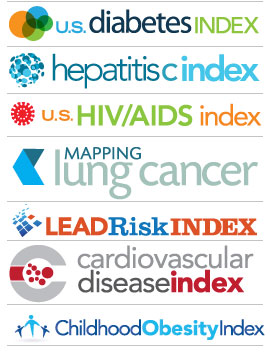Posted by National Health Index
Clinical Trial News
Tuesday, August 14th, 2012
Ctj.sagepub.com: 8/9/12. Statistics Collaborative, Inc., Washington, DC, USA This article addresses a problem arising when a trial shows such strong evidence of benefit of the tested intervention that it stops early with an observed effect size for the experimental treatment that is statistically significantly better than the control. Within the classical frequentist framework of group sequential […]
Posted by National Health Index
Clinical Trial News
Tuesday, August 14th, 2012
Nejm.org: August 9, 2012 The U.S. process for approving innovative, high-risk medical devices has been criticized for taking longer than the European approval process.1This contention is often used to support the argument that the Food and Drug Administration (FDA) should lower its standards for approving medical devices, since a slow approval process is delaying Americans’ access […]
Posted by National Health Index
Clinical Trial News
Tuesday, August 14th, 2012
Jama.jamanetwork.com: August 8, 2012 Knowing the complete results of all conducted studies on a question of interest is important to avoid publication and selective outcome reporting biases1 and to obtain a reliable picture of the evidence. However, in many types of research, the problem of selectively missing information does not pertain only to studies that have already […]
Posted by National Health Index
Clinical Trial News
Tuesday, August 14th, 2012
Equityhealthj.com /12 This article outlines the meaningful participation of eight Aboriginal and Torres Strait Islander community members employed as community researchers investigating the impact of pandemic influenza in rural and remote Indigenous communities in Australia. Aboriginal and Torres Strait Islander participation is now a requirement of health research involving Aboriginal and Torres Strait Islander communities. […]
Posted by National Health Index
Clinical Trial News
Tuesday, August 14th, 2012
Ctj.sagepub.com: August 7, 2012 Background Many comparative studies report results at multiple time points. Such data are correlated because they pertain to the same patients, but are typically meta-analyzed as separate quantitative syntheses at each time point, ignoring the correlations between time points. Purpose To develop a meta-analytic approach that estimates treatment effects at successive time points and […]
Posted by National Health Index
Clinical Trial News
Wednesday, August 8th, 2012
Trialsjournal.com: 8/6/12 Selection of appropriate outcomes or domains is crucial when designing clinical trials to compare directly the effects of different interventions in ways that minimise bias. If the findings are to influence policy and practice then the chosen outcomes need to be relevant and important to key stakeholders including patients and the public, health care […]
Posted by National Health Index
Clinical Trial News
Wednesday, August 8th, 2012
Ctj.sagepub.com: August 3, 2012 Traditional calculations of sample size do not formally incorporate uncertainty about the likely effect size. Use of a normal prior to express that uncertainty, as recently recommended, can lead to power that does not approach 1 as the sample size approaches infinity. Purpose To provide approaches for calculating sample size and power that […]
Posted by National Health Index
Clinical Trial News
Wednesday, August 8th, 2012
Tthehindubusinessline.com: 8/1/12 It is wrong to argue that Indians are being used as guinea pigs in clinical trials. The Supreme Court’s recent directives to the Government to deal with illegal clinical trials are timely and relevant, both for the development of medicine and the welfare of subjects participating in such trials. Clinical research is an […]
Posted by National Health Index
Clinical Trial News
Wednesday, August 8th, 2012
Ctj.sagepub.com: July 30, 2012 Audits are often performed to assess the quality of clinical trial data, but beyond detecting fraud or sloppiness, the audit data are generally ignored. In an earlier study, using data from a nonrandomized study, Shepherd and Yu developed statistical methods to incorporate audit results into study estimates and demonstrated that audit data […]
Posted by National Health Index
Clinical Trial News
Wednesday, August 8th, 2012
Clinipace.com: July 26, 2012 by Cindy Venendaal The number of clinical trials conducted in the Asia-Pacific Rim is increasing, rising from 6% of the global total in 2005/2007 to 10% in 2011. (Clinical Trial Magnifier 2011,http://ctmagnifier.org/2011/M2011_4_01.aspx) One of the key factors driving growth is faster study start-up times compared with the West. Much of this timeline compression […]

